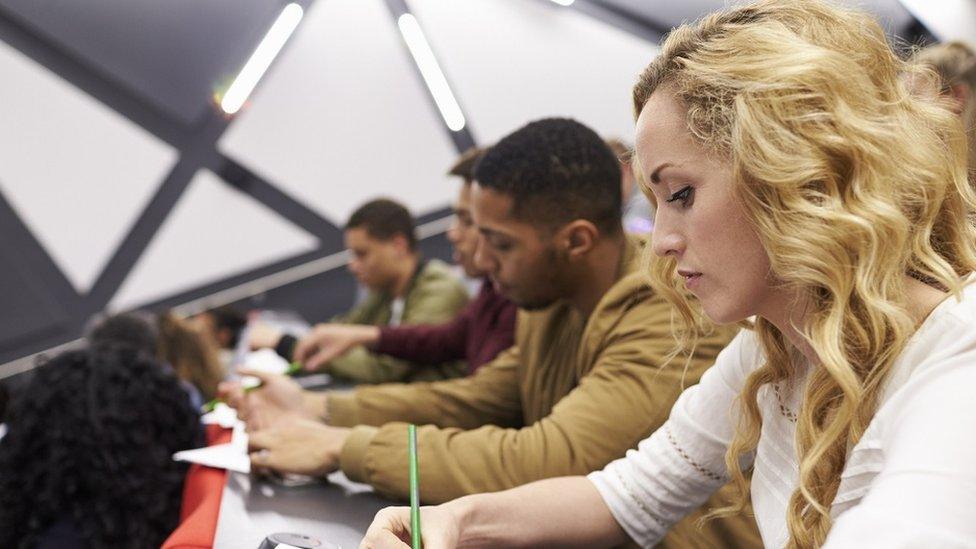Coronavirus: Students return to socially-distanced university campuses
- Published
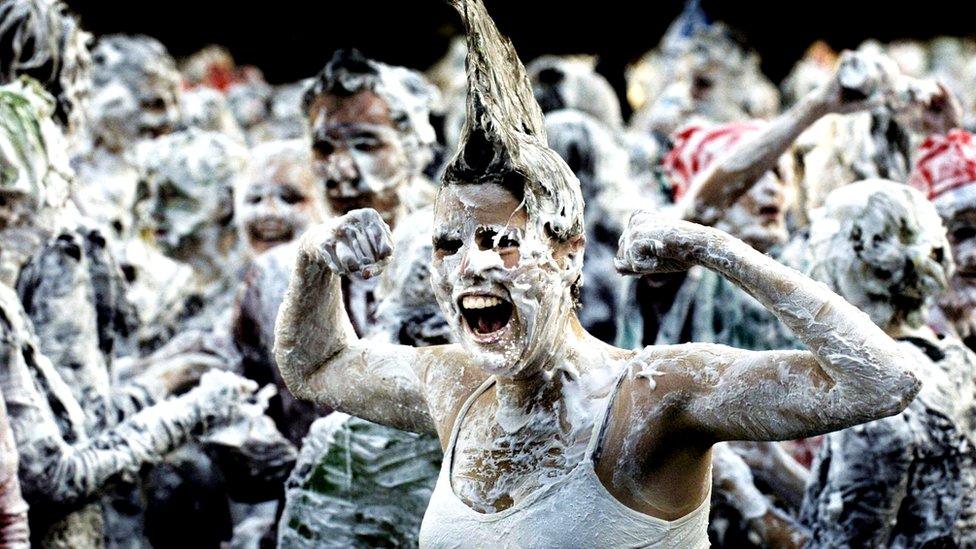
The traditional Raisin weekend at St Andrews University has been postponed until spring, due to the pandemic
For many students, their years at university are as much about lectures and libraries as house parties, sports teams and the student union bar.
But for the thousands returning to colleges and universities over the next few weeks, their educational and social experience is likely to be very different.
Measures to minimise the spread of coronavirus mean many will be be swapping lecture theatres for online classes and virtual events on socially-distanced campuses.
BBC Scotland has spoken to students and university leaders preparing for the new term.
'Not a normal start'
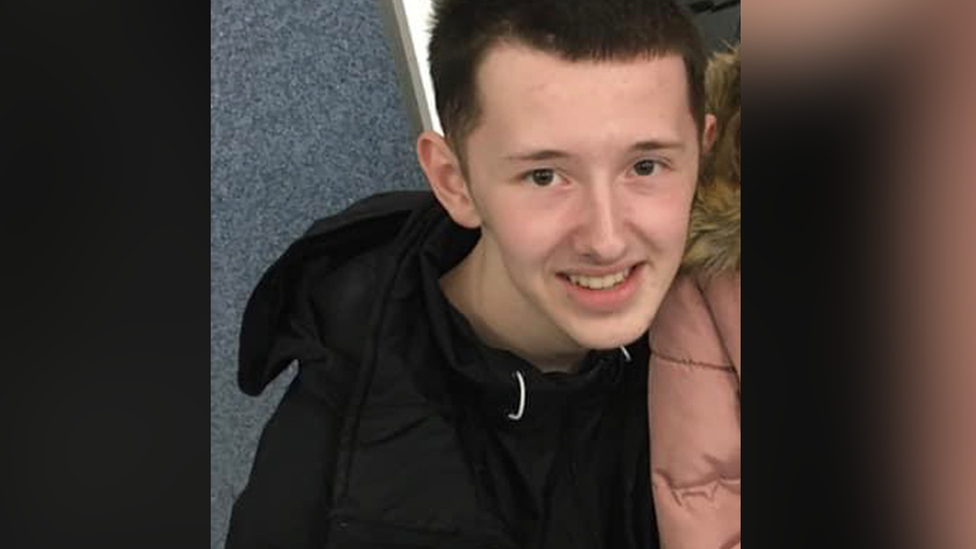
Gordon is due to start a social work degree at Glasgow Caledonian University
Gordon Edwards is volunteering with a support team helping newly-arrived students at Glasgow Caledonian University.
Freshers week will be online and when terms starts properly there will be few face-to-face classes.
"There are a few people thinking: 'This isn't what I expected when I went to university'," said the 21-year-old who is starting a degree in social work this term.
Originally from the north of England, Gordon will be moving into student accommodation next week.
Government guidance, external for accommodation and campus makes the reality clear: "This will not feel like a normal start to a student's university or college life."
"We're not even allowed to have anyone to help move stuff in," said Gordon. "Our families can't go into our rooms."
He added: "I think people are very disappointed with how the halls experience is going to be this year - we can go out to pubs but there won't be any house parties."
And they are worried that online lessons will affect their studies and their ability to make new friends, he said.
'A very limited student experience'
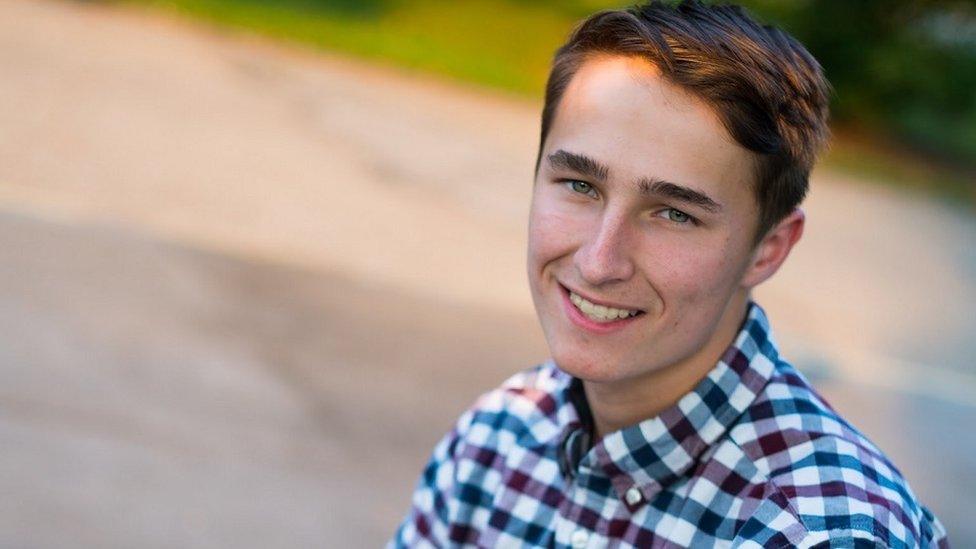
Jordan Hunter says a lot of students will be coming back to university to find their classes are entirely online
In many institutions, face-to-face teaching will be prioritised for subjects that need it most, like medicine and veterinary science.
Students who live together can form households but it is likely that most interactions with classmates will be by video call.
"As it stands, there's a very limited student experience," said Jordan Hunter, a politics and central eastern studies student at Glasgow University.
As editor of the student-run Glasgow Guardian newspaper, he has heard how anxious many of his colleagues are.
"The student nightclub Hive is shut. Societies can't meet up in person," he said.
"So what really is the student experience other than going to a restaurant or bar or staying in flats?"
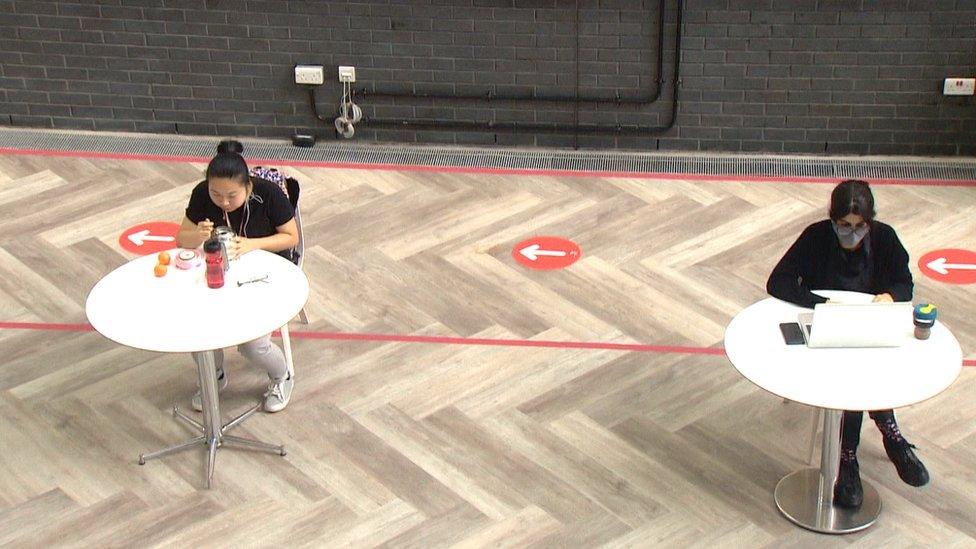
Universities have had to adapt to social distancing
The opportunity to meet colleagues and socialise is likely to be most difficult for students who live at home with their families.
President of the National Union of Students in Scotland, Matt Crilly, said some students were "at risk of experiencing increased isolation."
He added: "As the new term starts, it is critical that students staying at home have digital access to support, along with the financial and emotional support which reflects the unique challenges that lie ahead this year."
'Slightly odd'
Some international students will also find they have to quarantine for two weeks when they arrive in Scotland.
Among them is Sanjana Ramaswamy, a third year student at St Andrews, who is isolating after returning to Scotland from New York for the first time since March.
"At first it was a bit daunting, having to stay in for two weeks, not being able to leave," she said. "I do think it's going to be a slightly odd year but I'm very excited."
However some students have decided not to travel to their universities as they know they will not be in classes.
It means there will be fewer people spending money in campus cafés or in the local community.
Senior vice-principal of St Andrews University, Brad McKay, explained: "We have had quite a number of students, about 1,000 if you include both new entrants and also returning students, who have opted for a period of time - some for a whole semester, some just for a period of weeks - to begin their studies remotely."
Changing spaces
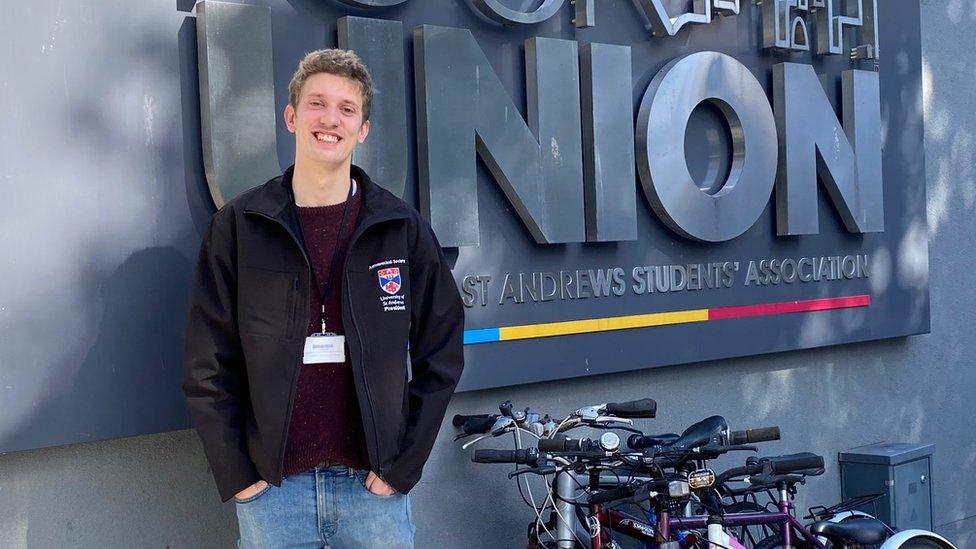
Dan Marshal has been organising online activities for students in quarantine
Classrooms, cafés and student accommodation have also had to be changed to allow social distancing and other measures to limit the spread of coronavirus.
Dan Marshal, president of St Andrews University Student Association, said: "The building isn't going to be as teeming with life as it usually is."
"A lot of our spaces are normally filled with society events but most of those will be happening online this year."
Andy McGoff, director of finance and operations at Edinburgh Napier University, said they were trying to give students the best possible experience in the safest way.
"Our campus capacity has been reduced considerably - we're down to 30% of normal capacity. It has been an expensive exercise," he said.

BACK TO SCHOOL: Can a school insist on a Covid test?
LOCKDOWN EASING: What changes next - and when?

- Published9 July 2020
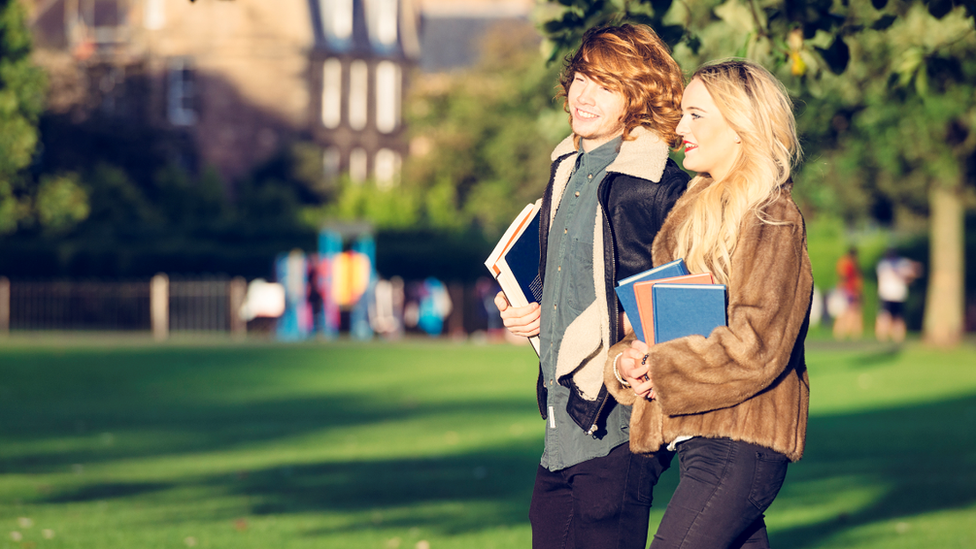
- Published16 May 2020
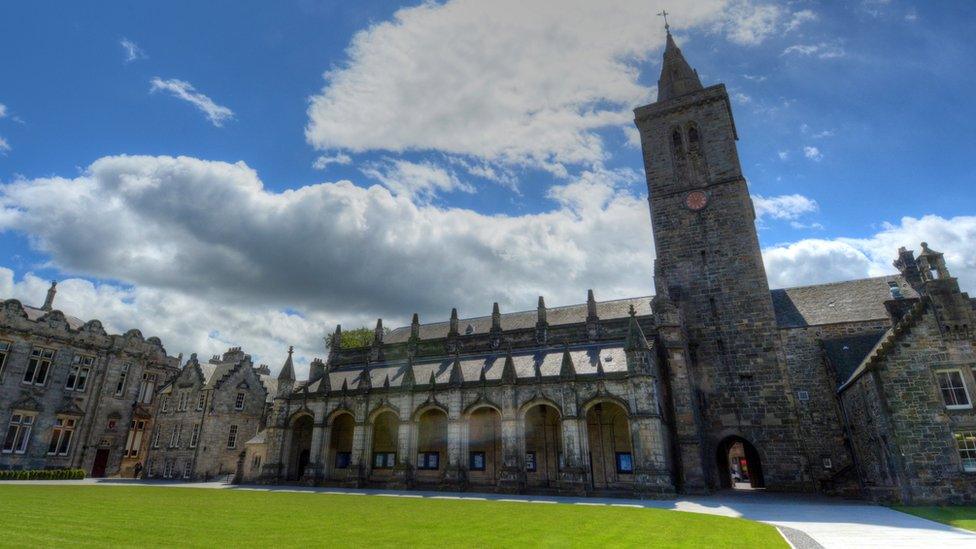
- Published9 July 2020
